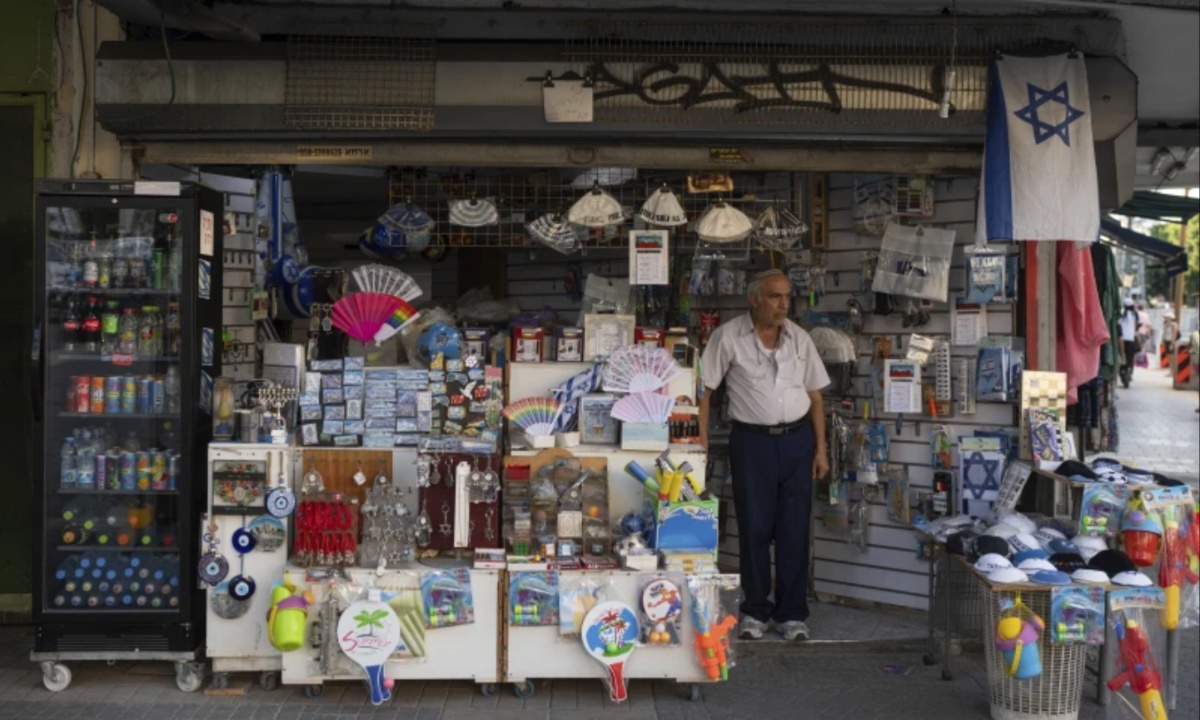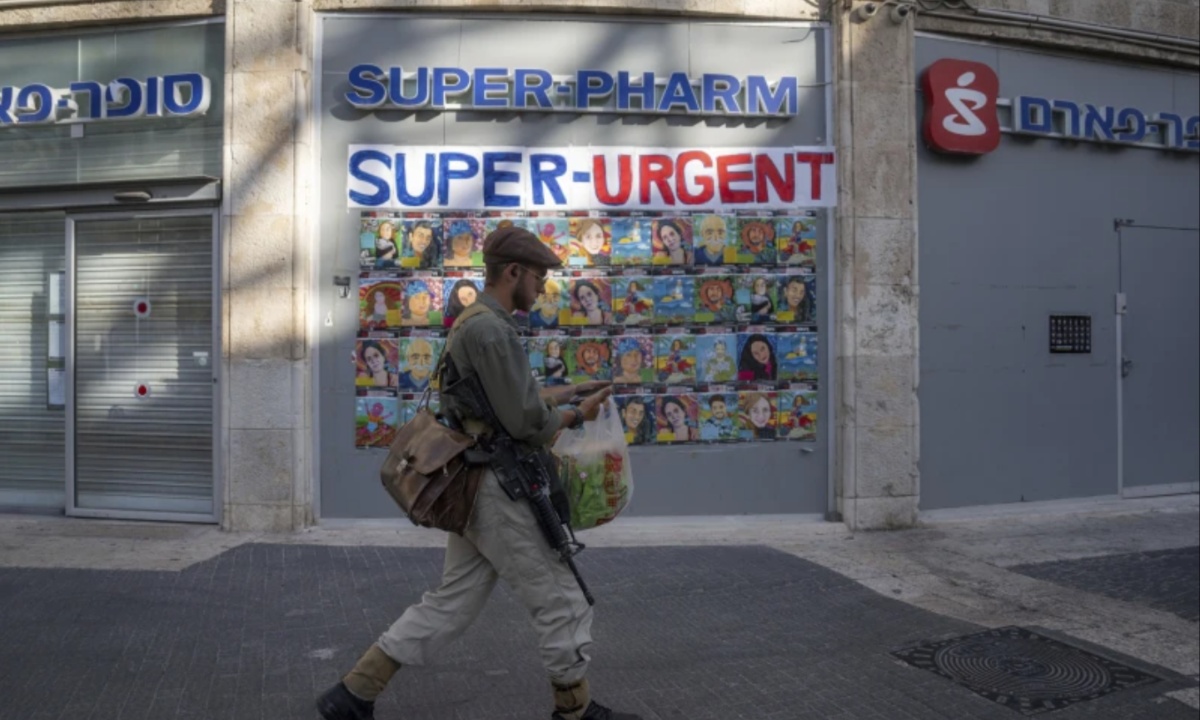In Tel Aviv’s vibrant entertainment district, diners enjoy outdoor seating while music fills the air, creating a lively atmosphere. Yet, this cheerful scene contrasts sharply with the grim reality of Israel’s ongoing conflict with Hamas. Posters of hostages taken during the deadly Oct. 7 attack hang prominently from lampposts and shop windows, serving as constant reminders of the war’s impact on the nation as it approaches its one-year anniversary.
Although many aspects of daily life appear to have returned to normal, the emotional scars from the war remain profound. Many Israelis continue to experience feelings of depression and anger, grappling with the uncertainty that shadows their everyday lives.
Activist Zeev Engelmayer highlights that discussions about the war infiltrate even casual gatherings, showing how the conflict has permeated all facets of life in Israel. This pervasive awareness makes it difficult for people to escape the trauma that has intertwined itself with their routines.
The aftermath of the Oct. 7 attack has shattered the once-strong sense of security among Israelis, who witnessed approximately 1,200 deaths and the abduction of around 250 individuals. With nearly 100 hostages still believed to be held in Gaza, anxiety about their fate fuels ongoing distress.

Tel Aviv Balances Vibrancy and Trauma as Conflict with Hamas Looms Over Daily Life
The war has also intensified regional tensions, with threats from Iran and Hezbollah further complicating the situation. Historian Tom Segev notes that many Israelis now feel a profound sense of hopelessness, reflecting on the challenges presented by a prolonged conflict that defies their historical expectations for quick military resolutions.
Public sentiment in Israel is increasingly polarized, with protests largely led by secular Jews opposing Prime Minister Netanyahu’s government and demanding action regarding hostages. A recent poll reveals a sharp divide in attitudes, as 61 percent of right-wing Israelis favor continuing the war despite rising casualties in Gaza.
This internal conflict complicates the national dialogue, as many citizens struggle to reconcile their own suffering with the humanitarian crisis unfolding just across the border.
As the anniversary of the attack draws near, widespread anger persists toward Israeli leadership for perceived failures in preventing the assault. Alternative ceremonies are expected to attract significant crowds, illustrating dissatisfaction with official narratives.
The profound loss of security continues to loom over the populace, prompting a reevaluation of what it means to live in Israel. For many, life is now characterized by a series of interruptions, overshadowed by the ever-present threat of violence.
While the impact of the war is undeniable, some aspects of daily life persist. Cafes, beaches, and cultural events continue to draw crowds, yet the specter of violence lingers, forcing residents to remain vigilant.
The constant awareness of potential danger has become ingrained in their routines, where checking for nearby bomb shelters and managing security alerts are now commonplace. This delicate balance between seeking normalcy and confronting fear reflects the ongoing struggle to maintain a sense of community amid turmoil.
Within this context, establishments like Cafe Otef stand as symbols of resilience. Located in a neighborhood affected by the violence, the cafe serves as a gathering spot for those seeking connection and solace.
With its origins rooted in a community that has faced profound loss, Otef embodies a collective effort to reclaim a sense of purpose. For owner Reut Karp, the routine of running the cafe offers not only a means of survival but also a glimmer of hope, reinforcing the belief that life must continue, even in the face of adversity.











































